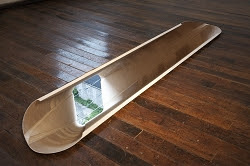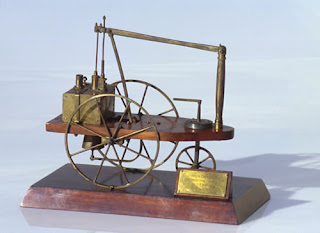 I ran across a really great museum on the internet recently: The Mattress Factory, which describes itself:
I ran across a really great museum on the internet recently: The Mattress Factory, which describes itself:"The Mattress Factory is a museum of contemporary art that presents art you can get into — room-sized environments, created by in-residence artists. Located in the historic Mexican War Streets of Pittsburgh’s North Side since 1977, the Mattress Factory is one of few museums of its kind anywhere."
 This piece by Sarah Oppenheimer is called 610-3356 and is an actual hole in the floor of one of the galleries. It connects to a window in a gallery below, providing a view out that window.
This piece by Sarah Oppenheimer is called 610-3356 and is an actual hole in the floor of one of the galleries. It connects to a window in a gallery below, providing a view out that window.The Mattress Factory also has a permanent exhibition of its own visitors called MF iConfess, a "confessional-like" structure in the museum lobby where visitors answer the question "What does the Mattress Factory mean to you?" (and other things!). 

One of the current exhibitions is called Sites of Passage which documents the performance artist Tavia La Follette's participation in an Artists Residency program in Egypt in the summer 2010.
 During her residency, she started a project called Firefly Tunnels, which she describes as "metaphorical passageways for the exchange of ideas through the language of Performance Art." The multimedia collaboration project involves artists from Egypt and the United States and includes some fascinating images.
During her residency, she started a project called Firefly Tunnels, which she describes as "metaphorical passageways for the exchange of ideas through the language of Performance Art." The multimedia collaboration project involves artists from Egypt and the United States and includes some fascinating images.









